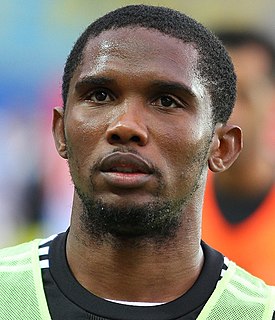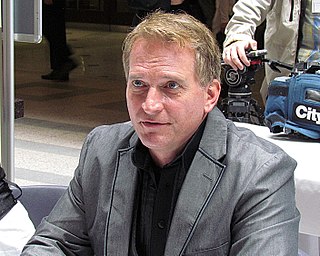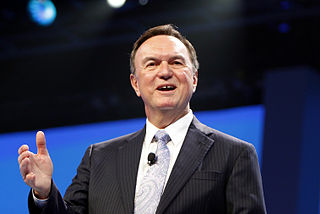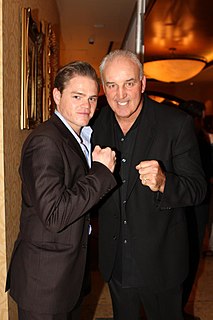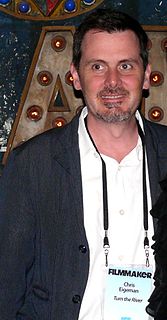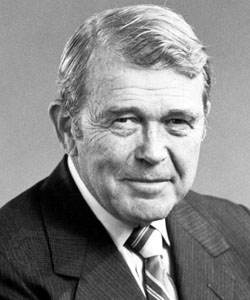Top 1001 Managers Quotes & Sayings - Page 14
Explore popular Managers quotes.
Last updated on April 20, 2025.
Many organizations help businesses to stay on top of what's changing or likely to change. It's important for executives and managers who focus on a company's health coverage to stay up-to-speed on what's happening, and it's important for those in the C-suite to understand the changes to factor these new variables into their strategic planning calculus.
The problem that people don't understand is that active managers, almost by definition, have to be poorly diversified. Otherwise, they're not really active. They have to make bets. What that means is there's a huge dispersion of outcomes that are totally consistent with just chance. There's no skill involved it. It's just good luck or bad luck.
There were certainly those who rubbed their eyes in astonishment. But when we held a company discussion forum with Joschka Fischer, interest was high. Six hundred senior managers came to the meeting. In the end, there was tremendous applause for Fischer, because he offered a precise analysis of the challenges our industry faces worldwide.
As regards Hillary C;inton's foreign policy actions and the powerful vested interests she seems gleefully beholden to, including all the biggest players in the military-industrial complex, I feel that she would be no better an actor on the world stage than Trump and whatever coalition of managers he might cobble together.
We are seeing more managed money and, to an extent, institutional money entering the space. Anecdotally speaking, I know of many people who are working at hedge funds or other investment managers who are trading cryptocurrency personally, the question is, when do people start doing it with their firms and funds?
The most successful executives are often men who have built their own companies. Ironically their very success frequently brings to them and members of their families personal problems of an intensity rarely encountered by professional managers. And these problems make family businesses probably the most difficult to operate.
Markets are efficient, but there are different dimensions of risk and those lead to different dimensions of expected returns. That's what people should be concerned with in their investment decisions and not with whether they can pick stocks, pick winners and losers among the various managers delivering basically the same product.
To prop up the stock price, managers have to turn down the screws on everybody. That forces them to cancel all the projects that would lead to future growth in order to drop money to the bottom line. This is HP's dilemma today. Once a company's growth has stopped, the game as we have known it is over. It's a scary thing.
Someone asked me about what's it like managing 2.2 million associates, and I said, 'When they're Wal-Mart associates, it's not all that hard because of the quality and the depth of our talent.' I'm really proud of the fact that 70% of the managers in the U.S. started as hourly associates with our company.
It remains true that great managers recognize individualities and focus on developing strengths rather than weaknesses. Great leaders, in sharp contrast, recognize what is (or could be) shared in common - a vision, a dream, a mission, whatever - and inspire others to join them in the given enterprise.
If policy makers and program managers participate in an interdisciplinary assessment team, make informal visits to local families and have in-depth conversations with local providers and health authorities, the real needs and complex challenges of organizing good reproductive health services become apparent.
The mistake managers often make is defining their industry too narrowly. Digital's market share in the minicomputer market stayed very robust even as it fell off the cliff. Disruption seems to come out of nowhere, but if you know what to look for, you can spot important developments well before the market does.
Renowned management guru Peter F.Drucker looked back at his 65-year consulting career shortly before he died. He concluded that great leaders could either be 'charismatic or dull' or 'visionary or numbers-orientated,' but the most inspiring and effective managers he knew all had said we rather than I.
In my first career I had founded my own company, with a group of MIT professors, before coming to Harvard to finish my doctorate, and so I had a deep respect for the brains, talent, and dedication of managers. That made it hard for me to believe the attributions in the business press that stupid management was to blame. So I looked elsewhere for an explanation.
I thought, 'Maybe if I become a cheerleader, I can meet managers or agents. Maybe I can sing the national anthem at a game, and someone in the industry will hear me.' I saw everything as an opportunity to further my music. I was literally the cheerleader who had a mixtape in between her pom-poms at events.
Purposeful organizations develop the next generation, not simply the next leader. My friend Marshall Goldsmith, bestselling author and leading executive coach, does not like the term succession planning. Better to say, "succession development." That means you are focusing on multiple managers and grooming them to lead.
Managers have traditionally developed the skills in finance, planning, marketing and production techniques. Too often the relations with their people have been assigned a secondary role. This is too important a subject not to receive first-line attention. In this regard we could learn much from the Japanese. We must reinvest in the human side of management.
I intend to give my best, to improve things and to create the football team in relation to my image and my football philosophy. I'm not a defender of old or new football managers. I believe in good ones and bad ones, those that achieve success and those that don't. Please don't call me arrogant, but I'm European champion and I think I'm a special one.
Possibly the biggest issue, however, is that performance appraisals focus managers attention on precisely the wrong thing: individual people. As W. Edwards Deming, the father of the quality movement, taught a long time ago, company performance often results more from variations in systems than from the individuals doing the work.
Now that we've discovered how to actually develop policies and projects holistically, if we can get the barriers out of the way and release the creativity that's in our universities, our farming organizations, amongst our farmers and land managers, we'll be astounded. As I'd like to express it, the human spirit will fly.
A romantic or classical view of the French approach would have been to say, 'It's a French company; let no one attack it. Let's block any merger. But the reality is Alcatel-Lucent is not a French company; it's a global company. Its main markets are China and the U.S. Its ownership is foreign; most of its managers aren't French.
Managers all over the world will go crazy when their artists are not touting the party line and making things pretty in the way that they're supposed to, but it's different when your manager is your husband. It's contrary to your soul. That commercial interest presses in upon your whole personal life.
We are slaves in the sense that we depend for our daily survival upon an expand-or-expire agro-industrial empire—a crackpot machine—that the specialists cannot comprehend and the managers cannot manage. Which is, furthermore, devouring world resources at an exponential rate. We are, most of us, dependent employees. …Edward Abbey (1927-1989)
I believe that science is best left to scientists, that you cannot have managers or directors of science, it's got to be carried out and done by people with ideas, people with concepts, people who feel in their bones that they want to go ahead and develop this, that, or the other concept which occurs to them.
If we are to have a stabilized market demand, selling pressure should be maintained . . . perhaps increased . . .at the first sign of a decline in business. I know of no single way business managers can do more to stabilize market demand than through greater stabilization of sales and advertising expenditures.






